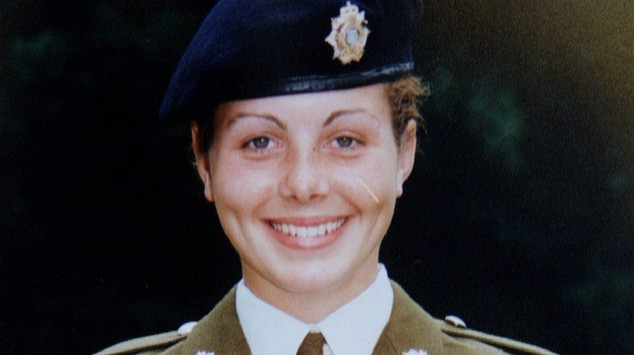Deepcut Barracks inquest: Head of British Army apologises to Private Cheryl James' family for 'tragedy'

The head of the Army has "unreservedly" apologised to the parents of Private Cheryl James and promised it will "be sure to learn from the recommendations" from the inquest into her death which ruled she had taken her own life at the Deepcut Barracks. General Sir Nick Carter, chief of the general staff, said the tragedy had taught the Army "some hard lessons" after it was heavily criticised by the coroner.
Carter's apology came after Pte James' family said they were "deeply saddened" by the inquest's findings that the 18-year-old died from a self-inflicted gunshot wound, and was not unlawfully killed.
Writing in the Daily Telegraph, General Carter said: "As the head of the Army, but also as a father, I deeply regret Cheryl's tragic death and I want to apologise unreservedly to Mr and Mrs James for the duty of care failings at Deepcut Barracks in 1995."
He added that her death "will serve as a constant reminder for me and for all of those who both lead and serve in the Army of the importance of ensuring all of our people are valued and have the opportunity to flourish." The Army, he said, had already made several changes including improved training, a zero-tolerance stance on bullying and discrimination and Ofsted-inspected schools.
After three months of evidence from more than 100 witnesses, coroner Brian Barker QC ruled that Pte James had died from an intentionally "self-inflicted shot" from her rifle at Deepcut Barracks. In a scathing criticism of the Surrey facility, where four soldiers died between 1995-2002, he said that instructors and officers flouted Army rules and had sexual relationships with the young recruits.
The inquest had heard that sexual promiscuity and heavy drinking were rife while Pte James was stationed there. Some instructors "saw young females as a sexual challenge", said Barker.
Barker told Woking Coroner's Court that the "haphazard provision of welfare support was insufficient" at the barracks. The fact that James was posted to do lone guard duty when she killed herself had created a "dangerous situation and provided the opportunity for her to take her life", he said. James's body was found near an entrance gate on 27 November 1995, not far from where she had been stationed.
But while she was desperate to leave the military, he said there was "no basis to establish that Ms James' disillusionment with the Army or any dislike of the Deepcut regime was, on the balance of probabilities, such as to cause her to wish to die".
After the verdict James' father Des James said the family was "deeply saddened" by the inquest's findings and that they did not believe the evidence led to the conclusions the coroner had reached.
Describing the barracks as a "toxic and horrible environment for a young woman", he said: "The evidence has revealed serious and profound failures in the care and supervision that ought to have been provided to her and to all the other young people that joined up with her."
Along with his wife Doreen, he vowed that the family, from Llangollen, north Wales, would continue with their fight for justice after the "immense disappointment" of the verdict.
The Samaritans provides a free support service for those who need to talk to someone in the UK and Republic of Ireland. It can be contacted via Samaritans.org or by calling 116 123 (UK) or 116 123 (ROI), 24 hours a day, 365 days a year.
© Copyright IBTimes 2025. All rights reserved.





















